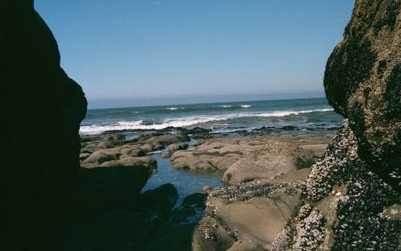The Israelite and Scythian
Origins of the Scots in Early British Tradition.
Nennius
Nennius was one of the earliest British historians. He was from Powys in Central
Wales by the English border and lived in the 800s CE.
The first part of the historical account of Nennius is usually
considered to be fictitious.
The History of Nennius in general has been described as having ‘all
the historical reliability of fairy-stories’.
We however believe the first part at least it to be basically correct and to
reflect the Israelite origin of the Scots people and their association with the
Scythians prior to their reaching the Isles of Britain.
This is what Nennius says concerning the first ancestor of the Scots:
Nennius:
Historia
Brittonum,
I. THE PROLOGUE.
http://www.fordham.edu/halsall/basis/nennius-full.html
15. According to the most learned among the Scots, if any one desires to learn
what I am now going to state, Ireland was a desert, and uninhabited, when the
children of Israel crossed the Red Sea, in which, as we read in the Book of the
Law, the Egyptians who followed them were drowned. At that period, there lived
among this people, with a numerous family a Scythian of noble birth, who had
been banished from his country, and did not go to pursue the people of God. The
Egyptians who were left, seeing the destruction of the great men of their
nation, and fearing lest he should possess himself of their territory, took
counsel together, and expelled him. Thus reduced, he wandered forty-two years in
Africa, and arrived with his family at the altars of the Philistines, by the
Lake of Osiers. Then passing between
Rusicada
and the hilly country of Syria, they
travelled
by the river Malva
through Mauritania as far as the Pillars of Hercules; and crossing the
Tyrrhene
Sea, landed in Spain, where they continued many years, having greatly increased
and multiplied Thence, a thousand and two years after the Egyptians were lost in
the Red Sea, they passed into Ireland, and the district of
Dalrieta.
At that period, Brutus, who first exercised the consular office, reigned over
the Romans; and the state, which before was governed by regal power, was
afterwards ruled, during four hundred and forty-seven years, by consuls,
tribunes of the people, and dictators.
The Britons came to Britain in the third age of the world; and in the fourth,
the Scots took possession of Ireland.
The Britons who, suspecting no hostilities, were
unprovided
with the means of defence,
were unanimously and incessantly attacked, both by the Scots from the west, and
by the Picts
from the north. A long interval after this, the Romans obtained the empire of
the world.
Brit-Am Commentary:
We understand that the Ten Tribes were Israelites who separated from
Judah, lost their identity, and became part of the Scythians.
From Scythia they moved westward with some of them penetrating the British
isles.
This extract from Nennius concerns the Scots who moved from Ireland to Scotland.
They said that the ancestor of the Scots lived amongst the Israelites.
This first Scot was described not as an Israelite however but rather as a
Scythian.
We must remember that the Irish and British scribes were relatively learned and
familiar with the Classics.
They probably were familiar with Josephus who was quite respected amongst early
Christian scholars.
Josephus had said that the Scythians descended from Magog.
In light of our other researches let us assume that there existed different
traditions saying (correctly) that the ancestors of the Scots were both
Israelites and Scythians.
Yet not an Israelite as the Jews were but something else.
Church Prejudice was against identification with the Jews.
Scholars said the Scythians were from Magog.
The concept of the Ten Tribes was not necessarily known to most scholars of the
time.
Without awareness of the Ten Tribes it would be difficult to
rationalize how someone could be both "Jew" or Hebrew from Israel and also a
Scythian from Magog
We therefore obtain an account such as that of Nennius that attempts to
reconcile the apparently divergent and contradictory sources.
Notice how the area of the land of Israel is circumvented though clearly
included in the ambit of the Scots sojourning:
# he wandered forty-two years in Africa,
and arrived with his family at the altars of the Philistines, by the Lake of
Osiers. Then passing between
Rusicada and the hilly country of
Syria, they travelled
by the river Malva
through Mauritania as far as the Pillars of Hercules; and crossing the
Tyrrhene
Sea, landed in Spain #
The altars of the Philistines are at the southern end of the land of Israel near
Egypt.
The hilly country of Syria is in the northern regions of the Land of Israel.
Nennius is not saying expressly that the Scots are from the Lost Ten Tribes BUT
if we were to take Nennius literally that is the conclusion we would reach from
our modern perspective.
This is what Nennius may be understood as saying. This in effect is
what did happen.
See Also:
The Earliest West European Beliefs in their Israelite Origins.
http://britam.org/countries/countriesindex.html
HEBREW CELTIC NAMESAKES
http://britam.org/namesakes.html

Pleased with what you have read?
The Brit-Am enterprise is a good Biblically-based work.
They who assist Brit-Am will be blessed.
Brit-Am depends on contributions alongside purchases of our publications
Click Here to make an offering.
Click Here to view our publications.
|
'It is impossible to rightly govern the
world without God or the Bible.'
George Washington
Brit-Am is the "still small voice" that contains the truth.
[1-Kings 19:12] AND AFTER THE EARTHQUAKE A FIRE; BUT THE LORD WAS NOT IN THE
FIRE: AND AFTER THE FIRE A STILL SMALL VOICE.
Home


